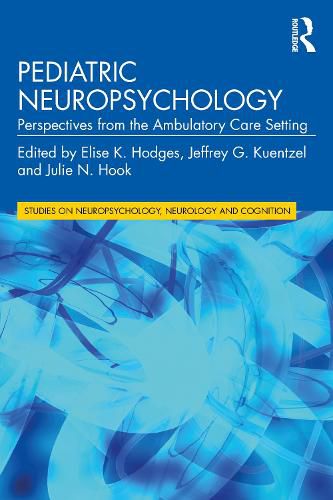Readings Newsletter
Become a Readings Member to make your shopping experience even easier.
Sign in or sign up for free!
You’re not far away from qualifying for FREE standard shipping within Australia
You’ve qualified for FREE standard shipping within Australia
The cart is loading…






Pediatric Neuropsychology: Perspectives in an Ambulatory Care Setting provides an overview of the most commonly seen disorders in outpatient settings including ADHD, Autism, congenital heart disease, blood cancer and hematologic conditions, brain tumors, and epilepsy. Each chapter provides up-to-date information on these pediatric neurodevelopmental and medical disorders, including a review of the neuroanatomic contributions as well as an overview of the neuropsychological findings. Alongside the neuroanatomic and neuropsychological underpinnings, case examples and intervention recommendations are provided for parents, educators and others who work with these populations, to enhance the ecological validity of neuropsychological assessments.
With reference to the latest diagnostic criteria, this book is an invaluable resource for neuropsychologists or neuropsychology students whose work includes pediatric patients with neurodevelopmental and neuro medical disorders. It is designed to provide practical information but also the most up to date research in neurobiological and neuroanatomical contributions of these disorders to inform the practitioner and enhance the care provided to their pediatric patients.
$9.00 standard shipping within Australia
FREE standard shipping within Australia for orders over $100.00
Express & International shipping calculated at checkout
Pediatric Neuropsychology: Perspectives in an Ambulatory Care Setting provides an overview of the most commonly seen disorders in outpatient settings including ADHD, Autism, congenital heart disease, blood cancer and hematologic conditions, brain tumors, and epilepsy. Each chapter provides up-to-date information on these pediatric neurodevelopmental and medical disorders, including a review of the neuroanatomic contributions as well as an overview of the neuropsychological findings. Alongside the neuroanatomic and neuropsychological underpinnings, case examples and intervention recommendations are provided for parents, educators and others who work with these populations, to enhance the ecological validity of neuropsychological assessments.
With reference to the latest diagnostic criteria, this book is an invaluable resource for neuropsychologists or neuropsychology students whose work includes pediatric patients with neurodevelopmental and neuro medical disorders. It is designed to provide practical information but also the most up to date research in neurobiological and neuroanatomical contributions of these disorders to inform the practitioner and enhance the care provided to their pediatric patients.